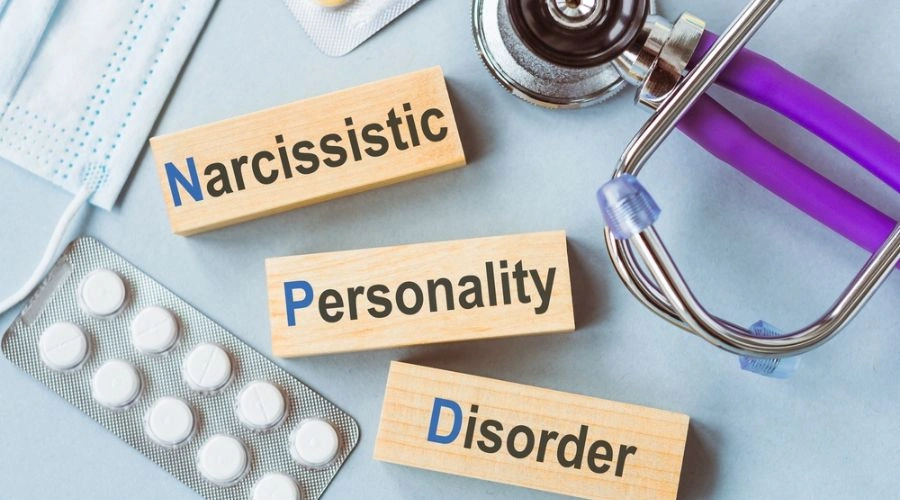The Best Path to Getting Avoidant Personality Disorder Diagnosed
Have you ever felt like you were tip-toeing around others, worried that what you do (or don’t do) might cause them to criticize you? Avoidant personality disorder comes with severe worries about rejection or criticism. It can affect your self-esteem and how you interact with others, leading to struggles with occupational functioning and your personal life.
The first step in treating any mental health condition is proper diagnosis. Below, you’ll find an avoidant personality disorder test that can offer some guidance in whether you are dealing with AVPD.
Whether the test indicates you have AVPD or not, reach out to Catalina Behavioral Health for the next steps in getting help if you are experiencing mental health distress or crisis. We can help with everything from treatment of avoidant personality disorder to screening for other mental disorders.
Get Confidential Trauma and Mental Health Assessment
Avoidant Personality Disorder Test
Answer each of these statements with “yes” or “no”. Think critically and answer honestly. This test is meant to be a tool for getting help.
- I feel easily embarrassed when receiving constructive criticism, even if it comes from a good place.
- Negative feedback makes me feel criticized or like I am not good enough, even when it is true.
- I frequently worry that other people do not like me.
- I sometimes think that I am below others or am not good enough to be on their level.
- I often feel uncomfortable or awkward when interacting with others, either socially or during job-related activities.
- I avoid social situations if I think I might be criticized or rejected in some way.
- I struggle with close relationships because I’m afraid of letting myself be vulnerable.
- If I feel criticized or judged, I withdraw from relationships instead of addressing issues.
- Being ridiculed or humiliated in front of others is a great fear of mine.
- I sometimes don’t try things because I’m afraid of failing and being judged by others.
- I don’t like expressing my emotions socially and tend to avoid conflict.
- I don’t think I am good at social interactions, so I avoid them when possible.
Total up your “yes” answers and go to the next section for the results.
Results
- 1-4 “yes” answers – There’s a low chance you are struggling with avoidant personality disorder.
- 5-8 “yes” answers – More than four “yeses” indicate a likelihood of avoidant personality disorder. Since some mental illness symptoms overlap, reach out to a mental health professional for a confirmed diagnosis.
- 8+ “yes” answers – There’s a strong chance you are struggling with avoidant personality disorder.
Symptoms of Avoidant Personality Disorder

People with avoidant personality disorder have several groups of symptoms, including sensitivity to criticism, social problems, and feelings of inadequacy. These symptoms may occur in the teenage years or during early adulthood.
While these symptoms are common, it’s important to remember that avoidant personality disorder presents a little differently in everyone. You don’t have to check every box on this list to be diagnosed.
Criticism Sensitivity
People with avoidant personality disorder worry so much about negative social interactions that they avoid any type of social feedback. You might have intense distress from worrying about negative evaluations or how others will respond to you.
It may also be hard to have open, honest conversations with family and friends because you cannot handle negative feedback. This takes a toll on relationships.
Social Inhibitions
People with avoidant personality disorder aren’t necessarily afraid of social interactions, but they avoid them because they are worried about embarrassment or rejection. They fear ridicule from their peers. You might be shy and unwilling to start conversations because of how people might respond.
By staying in your comfort zone and never trying anything new, you reduce the risk of social feedback. Unfortunately, you also stop yourself from developing social skills and having new life experiences.
Get Accredited Treatment Programs at Catalina
Feelings of Inadequacy
Worries about how others will perceive you may make you extremely critical in social situations. You may also struggle with low self-esteem, feel socially inept, or believe that you are below others because of your inability to communicate.
When feelings of inadequacy are severe, it can even lead to depression, suicidal ideation, or even suicide attempts.
Other Common Symptoms of Avoidant Personality Disorder
People with avoidant personality disorder tend to feel lonely or isolated because of social struggles. You may struggle with relationships at work and in your personal life.
Lack of intimacy and vulnerability makes it hard to keep close relationships and you may find yourself fantasizing about relationships that you wish you were in.
Mental Illnesses with Similar Symptoms as Avoidant Personality Disorder (AVPD)

One of the struggles with taking online tests is that many mental health disorders have symptoms that overlap. It’s hard to recognize the differences without a professional diagnosis, especially if you are struggling with co-occurring conditions.
These mental disorders have a handful of symptoms similar to avoidant personality disorder but present differently. They highlight the importance of getting an accurate diagnosis of avoidant personality disorder before choosing a course of treatment.
Rejection Sensitive Dysphoria
People with rejection-sensitive dysphoria experience extreme emotional pain from rejection, whether real or imagined. This is accompanied by a fear of failure, unwillingness to try new things, and long-term mental health issues.
Obsessive Compulsive Personality Disorder
People with obsessive-compulsive personality disorder struggle with perfection. They may avoid social interactions out of fear of making mistakes.
Borderline Personality Disorder

If you are struggling with borderline personality disorder, you may struggle with rejection, have a fear of abandonment, and experience intense emotions as a result. Emotional instability and fears of rejection can mimic AVPD.
Antisocial Personality Disorder and Social Anxiety Disorder
Social anxiety disorder shares social withdrawal similar to what is experienced during AVPD. Social phobia is more generalized, rather than stemming from fear of how others will react or criticize them. Antisocial personality disorder is more likely to be centered on figures of authority.
With all these conditions, though, there is a high risk of social withdrawal and avoiding situations that might cause significant distress.
Schizophrenia
People who struggle with schizoid personality disorder or schizotypal personality disorder struggle to maintain relationships and social interactions because of disorganized thinking and hallucinations. Social withdrawal is also common with schizophrenic conditions.
Histrionic Personality Disorder
People with histrionic personality disorder require approval from authority figures and peers. Their sensitivity to rejection mimics avoidant personality disorder.
Narcissistic Personality Disorder

People with narcissistic personality disorder need admiration from others around them. When they are criticized, however, they may react similarly to the way someone with AVPD does.
Autism
Many people who are autistic struggle with social interactions and communication. These struggles can lead to isolation or social rejection, mimicking AVPD.
Depression
Symptoms like low self-esteem and social withdrawal can also be caused by depression. People who have AVPD may also struggle with depression in addition to avoidant personality disorder.
Mental Health Treatment Approved by the American Psychiatric Association
The Diagnostic and Statistical Manual (DSM) by the American Psychiatric Association is a useful tool for the proper diagnosis of mental health conditions when used by a licensed mental health professional. They can analyze subtype-related differences and ask additional questions about AVPD symptoms, medical history, or genetic factors that might help with reaching a diagnosis.
Disorders are grouped by type, making it easy to analyze personality traits and behaviors that give insight into the condition(s) you are struggling with. Being diagnosed is the first step in learning to manage severe symptoms of AVPD.
After diagnosis at Catalina, we can help you decide on the next steps. Our holistic approach involves strategies to overcome extreme sensitivity to rejection, confidence-building through experiential therapies, and improving social skills. You can learn to take risks, interact socially, and have close relationships without your mental health getting in the way – especially with proper support!
Help for Co-Occurring Disorders

Co-occurring mental health diagnoses are common. Many types of mental illness share similar risk factors. Other times, mental illness causes a secondary condition like depression or anxiety.
According to research, just under 20% of people who have attention deficit hyperactivity disorder (ADHD) also struggle with AVPD. There’s also a high occurrence of social anxiety disorder in these groups.
People with avoidant personality disorder also commonly struggle with depression. Things like poor self-image, social isolation, and other more severe symptoms are hard to deal with. It’s even harder to deal with alone.
When a person struggles with more than one mental health disorder, it’s hard to find a proper diagnosis. After contacting Catalina, you’ll be given a thorough intake assessment that screens for different conditions. Following formal diagnosis, the best path to effective mental health treatment becomes clear.
Up To 100% of Rehab Costs Covered By Insurance
Reach Out to Catalina for a Confirmed Diagnosis
With any online mental health tests, there is room for error. Even if you answered “yes” to all the questions, call Catalina for a confirmed diagnosis today. We understand the serious toll that struggling with a condition like avoidant personality disorder can take on a person’s life.
Not only will you find an accurate diagnosis, but our team is ready to help you learn to manage avoidant personality disorder, heal relationships, and make it easier to interact with the people around you.




